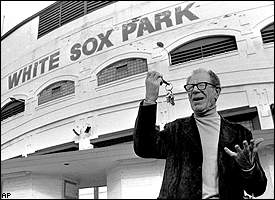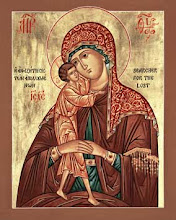From THE POPE’S PHYSICIST by Fr. Paul Haffner
The Origin of Science
How is it that science became a self-sustaining enterprise only in the Christian West?
…as Whitehead pointed out, it is no coincidence that science sprang, not from Ionian metaphysics, not from the Brahmin-Buddhist-Taoist East, not from the Egyptian-Mayan astrological South, but from the heart of the Christian West, that although Galileo fell out with the Church, he would hardly have taken so much trouble studying Jupiter and dropping objects from towers if the reality and value and order of things had not first been conferred by belief in the Incarnation. (Walker Percy, Lost in the Cosmos)
To the popular mind, science is completely inimical to religion: science embraces facts and evidence while religion professes blind faith. Like many simplistic popular notions, this view is mistaken. Modern science is not only compatible with Christianity, it in fact finds its origins in Christianity. This is not to say that the Bible is a science textbook that contains raw scientific truths, as some evangelical Christians would have us believe. The Christian faith contains deeper truths– truths with philosophical consequences that make conceivable the mind’s exploration of nature: man’s place in God’s creation, who God is and how he freely created a cosmos.
In large part, the modern mind thinks little of these notions in much the same way that the last thing on a fish’s mind is the water it breathes. It is difficult for those raised in a scientific world to appreciate the plight of the ancient mind trapped within an eternal and arbitrary world. It is difficult for those raised in a post-Christian world to appreciate the radical novelty and liberation Christian ideas presented to the ancient mind.
The following selection summarizes the most notable work of Stanley Jaki, renowned historian of science and Templeton Prize laureate.
How did Christian belief provide a cultural matrix (womb) for the growth of science?
In Christ and Science (p. 23), Jaki gives four reasons for modern science’s unique birth in Christian Western Europe:
- “Once more the Christian belief in the Creator allowed a break-through in thinking about nature. Only a truly transcendental Creator could be thought of as being powerful enough to create a nature with autonomous laws without his power over nature being thereby diminished. Once the basic among those laws were formulated science could develop on its own terms.”
- “The Christian idea of creation made still another crucially important contribution to the future of science. It consisted in putting all material beings on the same level as being mere creatures. Unlike in the pagan Greek cosmos, there could be no divine bodies in the Christian cosmos. All bodies, heavenly and terrestrial, were now on the same footing, on the same level. this made it eventually possible to assume that the motion of the moon and the fall of a body on earth could be governed by the same law of gravitation. The assumption would have been a sacrilege in the eyes of anyone in the Greek pantheistic tradition, or in any similar tradition in any of the ancient cultures.”
- “Finally, man figured in the Christian dogma of creation as a being specially created in the image of God. This image consisted both in man’s rationality as somehow sharing in God’s own rationality and in man’s condition as an ethical being with eternal responsibility for his actions. Man’s reflection on his own rationality had therefore to give him confidence that his created mind could fathom the rationality of the created realm.”
- “At the same time, the very createdness could caution man to guard agains the ever-present temptation to dictate to nature what it ought to be. The eventual rise of the experimental method owes much to that Christian matrix.”
But what about the other monotheistic religions?
Jaki notes that before Christ the Jews never formed a very large community (priv. comm.). In later times, the Jews lacked the Christian notion that Jesus was the monogenes or unigenitus, the only-begotten of God. Pantheists like the Greeks tended to identify the monogenes or unigenitus with the universe itself, or with the heavens. Jaki writes:
Herein lies the tremendous difference between Christian monotheism on the one hand and Jewish and Muslim monotheism on the other. This explains also the fact that it is almost natural for a Jewish or Muslim intellectual to become a patheist. About the former Spinoza and Einstein are well-known examples. As to the Muslims, it should be enough to think of the Averroists. With this in mind one can also hope to understand why the Muslims, who for five hundred years had studied Aristotle’s works and produced many commentaries on them failed to make a breakthrough. The latter came in medieval Christian context and just about within a hundred years from the availability of Aristotle’s works in Latin
As we will see below, the break-through that began science was a Christian commentary on Aristotle’s De Caelo (On the Heavens).
So how did it all happen? Or fail to happen?
Fr. Paul Haffner writes:
Modern experimental science was rendered possible, Jaki has shown, as a result of the Christian philosophical atmosphere of the Middle Ages. Although a talent for science was certainly present in the ancient world (for example in the design and construction of the Egyptian pyramids), nevertheless the philosophical and psychological climate was hostile to a self-sustaining scientific process. Thus science suffered still-births in the cultures of ancient China, India, Egypt and Babylonia. It also failed to come to fruition among the Maya, Incas and Aztecs of the Americas. Even though ancient Greece came closer to achieving a continuous scientific enterprise than any other ancient culture, science was not born there either. Science did not come to birth among the medieval Muslim heirs to Aristotle.
….The psychological climate of such ancient cultures, with their belief that the universe was infinite and time an endless repetition of historical cycles, was often either hopelessness or complacency (hardly what is needed to spur and sustain scientific progress); and in either case there was a failure to arrive at a belief in the existence of God the Creator and of creation itself as therefore rational and intelligible. Thus their inability to produce a self-sustaining scientific enterprise.
If science suffered only stillbirths in ancient cultures, how did it come to its unique viable birth? The beginning of science as a fully fledged enterprise took place in relation to two important definitions of the Magisterium of the Church. The first was the definition at the Fourth Lateran Council in the year 1215, that the universe was created out of nothing at the beginning of time. The second magisterial statement was at the local level, enunciated by Bishop Stephen Tempier of Paris who, on March 7, 1277, condemned 219 Aristotelian propositions, so outlawing the deterministic and necessitarian views of creation.
These statements of the teaching authority of the Church expressed an atmosphere in which faith in God had penetrated the medieval culture and given rise to philosophical consequences. The cosmos was seen as contingent in its existence and thus dependent on a divine choice which called it into being; the universe is also contingent in itsnature and so God was free to create this particular form of world among an infinity of other possibilities. Thus the cosmos cannot be a necessary form of existence; and so it has to be approached by a posteriori investigation. The universe is also rational and so a coherent discourse can be made about it. Indeed the contingency and rationality of the cosmos are like two pillars supporting the Christian vision of the cosmos.
The rise of science needed the broad and persistent sharing by the whole population, that is, the entire culture, of a very specific body of doctrines relating the universe to a universal and absolute intelligibility embodied in the tenet about a personal God, the Creator of all. Therefore it was not chance that the first physicist was John Buridan, professor at the Sorbonne around the year 1330, just after the time of the two above-mentioned statements of the Church’s teaching office.
Buridan’s vision of the universe was steeped in the Christian doctrine of the creation; in particular, he rejected the Aristotelian idea [in De Caelo] of a cosmos existing from all eternity. He developed the idea of impetus in which God was seen as responsible for the initial setting in motion of the heavenly bodies, which then remained in motion without the necessity of a direct action on the part of God. This was different from Aristotle’s approach, in which the motion of heavenly bodies had no beginning and would also have no end. Buridan’s work was continued by his disciple, Nicholas Oresme, around the year 1370; impetus theory anticipated Newton’s first law of motion.
The doctrine that God created the universe out of nothing and that the universe had a beginning was later to be reiterated at the First Vatican Council, against the errors of materialism and pantheism which enjoyed a new vogue at that time. In addition, Vatican I stated the absolute freedom of God to create, and made clear (against fideism) the possibility of arriving at God’s existence through a rational reflection upon creation. As Jaki states: “The Council, in line with a tradition almost two millenia old, could but insist on the very foundation of that relation which is man’s ability to see the reasonability of revelation, which in turn is inconceivable if man is not able to infer from the world surrounding him the existence of its Creator.
It is precisely the inability of many scientists to trace the grandeur of the Creator in His works that Jaki opposes with great skill. He challenges the atheistic positions of R. Dawkins in the biological sphere and of Stephen Hawking in physics. He shows that the best way to unmask the thought of non-believing scientists is to show how the basis for their reasoning cannot be proven scientifically. In an unjustified way they leave the realm of their own scientific disciplines and make a priori philosophical deductions against Christian belief. Again, one example of this is the pervasive “chance” or “chaos” ideology used to “explain” the coming into being of the material universe, of life and of the human person. Stanley Jaki has also refuted such approaches to the cosmos and creation in his masterly work,The Purpose of It All, published in 1990.
The originality of Jaki’s thought also lies in the link which he describes between the dogmas of the Creation and the Incarnation. He shows how the development of the doctrine of creation out of nothing was “connected with the conceptual refinements of the doctrine of the Incarnation around which raged the great inner debates of the early Church.” Jaki then discusses how the Jewish position on creation underwent a change during the first few centuries of Christianity. Philo, a contemporary of Jesus, tried to interpret the first chapter of Genesis, but his view “showed him closer to Greek eternalism than to Biblical creationism.” The earliest midrashim “showed that Jewish theologians were no longer willing to uphold the doctrine of the complete submission of matter to the Maker of all.” In the Mutazalite tradition of Islam there was also a tendency to slide towards emanationism and pantheism, as a result of endorsing the pantheistic necessitarianism of Aristotle.
Jaki clearly affirms that in Christianity, a slide into pantheism was prevented because the doctrine of the creation was bolstered up by faith in the Incarnation. Pantheism is invariably present when the eternal and cyclic view of the cosmos prevails. The uniqueness of the Incarnation and Redemption dashed to pieces any possibility of the eternal and cyclic view; for if the world were cyclic, the once-and-for-all coming of Christ would be undermined. The uniqueness of Christ secures a linear view of history and makes Christianity more than just one among many historical factors influencing the world. The dogmas of the Creation and Incarnation mean “an absolute and most revolutionary break with a past steeped in paganism,” and the enunciation of these dogmas and their historical impact is “an uphill fight never to be completed.”
…
But the cosmos and all the specific laws which govern it do not form a self-explanatory system; they point beyond science and call for a metaphysical foundation in the Christian doctrine of creation. It is precisely this Christian doctrine of creation which, according to Jaki, was the stimulus for the unique viable birth of science. The Christian doctrine of creation finds its expression within the Church.









